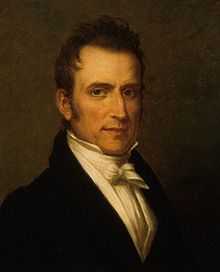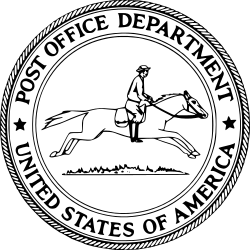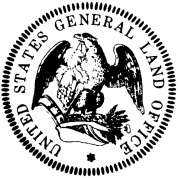John McLean
| John McLean | |
|---|---|
 | |
| Associate Justice of the Supreme Court of the United States | |
| In office March 7, 1829 – April 4, 1861 | |
| Nominated by | Andrew Jackson |
| Preceded by | Robert Trimble |
| Succeeded by | Noah Haynes Swayne |
| 6th United States Postmaster General | |
| In office June 26, 1823 – March 4, 1829 | |
| President | James Monroe John Quincy Adams |
| Preceded by | Return J. Meigs, Jr. |
| Succeeded by | William T. Barry |
| Member of the U.S. House of Representatives from Ohio's 1st district | |
| In office March 4, 1813 – October 8, 1816 | |
| Preceded by | Position established |
| Succeeded by | William Henry Harrison |
| Personal details | |
| Born | March 11, 1785 Morris County, New Jersey |
| Died | April 4, 1861 (aged 76) Cincinnati, Ohio, U.S. |
| Political party | Democratic-Republican, Jacksonian, National Republican, Anti-Masonic, Republican |
| Spouse(s) | Rebecca E. Edwards Sarah Bella Ludlow Garrard |
| Profession | Lawyer, Politician, Judge |
| Religion | Methodist |
John McLean (March 11, 1785 – April 4, 1861) was an American jurist and politician who served in the United States Congress, as U.S. Postmaster General, and as a justice on the Ohio and U.S. Supreme Courts. He was often discussed for the Whig and Republican nominations for President.[1]
Early years
McLean was born in Morris County, New Jersey, the son of Fergus McLean and Sophia Blackford. After living in a succession of frontier towns, Morgantown, Virginia; Nicholasville, Kentucky; and Maysville, Kentucky; in 1797 his family settled in Ridgeville, Warren County, Ohio. His brother William was also a successful Ohio politician. His brother Finis McLean was a United States Representative from Kentucky.
He read law and was admitted to the bar in 1807. That same year he founded The Western Star, a weekly newspaper at Lebanon, the Warren County seat, where he practiced law. He was elected to the U.S. House for the Thirteenth and Fourteenth Congresses, serving from March 4, 1813, until he resigned in 1816 to take a seat on the Ohio Supreme Court, to which he had been elected on February 17, 1816, replacing William W. Irvin.
Executive branch service

He resigned his judgeship in 1822 to take President James Monroe's appointment to be Commissioner of the General Land Office, serving until 1823, when Monroe appointed him United States Postmaster General. McLean served in that post from December 9, 1823, to March 7, 1829, under Monroe and John Quincy Adams, presiding over a massive expansion of the Post Office into the new western states and territories and the elevation of the Postmaster Generalship to a cabinet office.
Supreme Court appointment and tenure
While Postmaster General, McLean supported Andrew Jackson, who offered him the posts of Secretary of War and Secretary of the Navy. McLean declined both and was instead appointed to the Supreme Court by Jackson on March 6, 1829, to a seat vacated by Robert Trimble. McLean was confirmed by the United States Senate on March 7, 1829, receiving his commission the same day.
Known as "The Politician on the Supreme Court," he associated himself with every party on the political spectrum, moving from a Jackson Democrat, to the Anti-Jackson Democrats, the Anti-Masonic Party, the Whigs, the Free Soilers, and finally the Republicans. Through the 1830s and 1840s, he was frequently discussed as a potential Whig presidential candidate. President John Tyler offered him the post of Secretary of War, but he declined. Because of his anti-slavery-extension positions, he was considered by the new Republican party as a candidate in 1856. Despite his efforts, the nomination went to John C. Frémont. In 1860, he tried again, winning twelve votes on the first ballot at the Republican convention in Chicago; Abraham Lincoln ultimately was nominated.
In Dred Scott v. Sandford, he was one of two dissenting Justices to the majority vote, the other being Justice Benjamin R. Curtis. Justice McLean cited Marie Louise v. Marot, an 1835 freedom suit appealed to the Louisiana Supreme Court in which Presiding Judge George Mathews, Jr. stated that "[b]eing free for one moment...it was not in the power of [the plaintiff's] former owner to reduce her again to slavery."[2] McLean's strong dissenting views are believed to have forced the hand of Chief Justice Roger Brooke Taney into a harsher and more polarizing opinion than he originally planned. To the argument that "a colored citizen would not be an agreeable member of society", McLean responded, "This is more a matter of taste than of law." He also wrote the Court's opinion denying there was a common-law copyright in American law in Wheaton v. Peters.
Societies
During the 1820s, McLean was a member of the prestigious society, Columbian Institute for the Promotion of Arts and Sciences, who counted among their members former presidents Andrew Jackson and John Quincy Adams and many prominent men of the day, including well-known representatives of the military, government service, medical and other professions.[3]
Death and Legacy
McLean became the last surviving member of the Monroe and Adams Cabinets. He died in Cincinnati, Ohio, and was buried in Spring Grove Cemetery there.[4] Also interred there is Stanley Matthews, another Associate Justice.[5] [6]
During the Civil War, Camp John McLean, a Union Army training camp in Cincinnati, was named in his honor.
His son (and Cincinnati native), Nathaniel C. McLean (b. 1815), was a Union general in the American Civil War. His daughter Evelyn McLean married Joseph Pannell Taylor, brother of U.S. President Zachary Taylor.
Notes
- Thomas E. Carney. "The Political Judge: Justice John McLean Pursuit of the Presidency. Ohio History. v. 111. Summer/Autumn 2002. 121+
- Francis Phelphs Weisenberger. The Life of John McLean, A Politician On the United States Supreme Court. Columbus, Ohio: The Ohio State University Press, 1937
- John McLean at the Biographical Directory of Federal Judges, a public domain publication of the Federal Judicial Center.
See also
|
![]() This article incorporates public domain material from websites or documents of the Biographical Directory of the United States Congress.
This article incorporates public domain material from websites or documents of the Biographical Directory of the United States Congress.
References
- ↑ Foner, Eric (2010). The Fiery Trial: Abraham Lincoln and American Slavery. 1735: W. W. Norton & Company,. ISBN 0-393-06618-5.
- ↑ "Champion of Civil Rights: Judge John Minor Wisdom". Southern Biography Series: LSU Press, 2009, p 24. http://books.google.com/books?id=atfIkRdwQ9kC&pg=PA24&dq=%22louisiana%22+%22george+mathews%22&hl=en#v=onepage&q=%20%22george%20mathews%22&f=false Retrieved December 4, 2012.
- ↑ Rathbun, Richard. The Columbian institute for the promotion of arts and sciences: A Washington Society of 1816-1838. Bulletin of the United States National Museum, October 18, 1917. Retrieved 2010-06-20.
- ↑ John McLean at Find A Grave
- ↑ Christensen, George A. "Here Lies the Supreme Court: Gravesites of the Justices". Supreme Court Historical Society(1983) Yearbook].
- ↑ Christensen, George A., "Here Lies the Supreme Court: Revisited", Journal of Supreme Court History, Volume 33 Issue 1, Pages 17–41 (19 Feb 2008), University of Alabama.
Further reading
| Wikimedia Commons has media related to John McLean. |
- Abraham, Henry J. (1992). Justices and Presidents: A Political History of Appointments to the Supreme Court (3rd ed.). New York: Oxford University Press. ISBN 0-19-506557-3.
- Cushman, Clare (2001). The Supreme Court Justices: Illustrated Biographies, 1789–1995 (2nd ed.). (Supreme Court Historical Society, Congressional Quarterly Books). ISBN 1-56802-126-7.
- Flanders, Henry. The Lives and Times of the Chief Justices of the United States Supreme Court. Philadelphia: J. B. Lippincott & Co., 1874 at Google Books.
- Frank, John P. (1995). Friedman, Leon; Israel, Fred L., eds. The Justices of the United States Supreme Court: Their Lives and Major Opinions. Chelsea House Publishers. ISBN 0-7910-1377-4.
- Hall, Kermit L., ed. (1992). The Oxford Companion to the Supreme Court of the United States. New York: Oxford University Press. ISBN 0-19-505835-6.
- Martin, Fenton S.; Goehlert, Robert U. (1990). The U.S. Supreme Court: A Bibliography. Washington, D.C.: Congressional Quarterly Books. ISBN 0-87187-554-3.
- Urofsky, Melvin I. (1994). The Supreme Court Justices: A Biographical Dictionary. New York: Garland Publishing. p. 590. ISBN 0-8153-1176-1.
- White, G. Edward. The Marshall Court & Cultural Change, 1815-35. Published in an abridged edition, 1991.
External links
- John McLean at Find a Grave
- "John McLean". Ohio History Central.
| Offices and distinctions | ||||||||||||||||||||||||
|---|---|---|---|---|---|---|---|---|---|---|---|---|---|---|---|---|---|---|---|---|---|---|---|---|
| ||||||||||||||||||||||||



